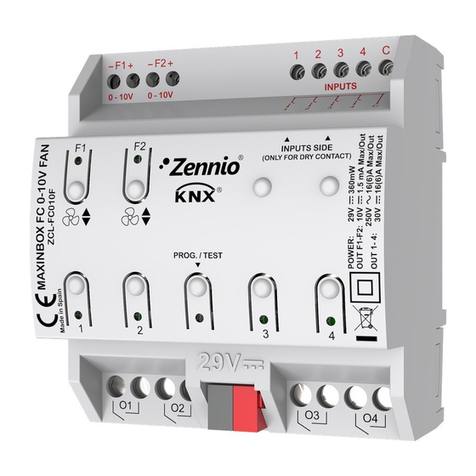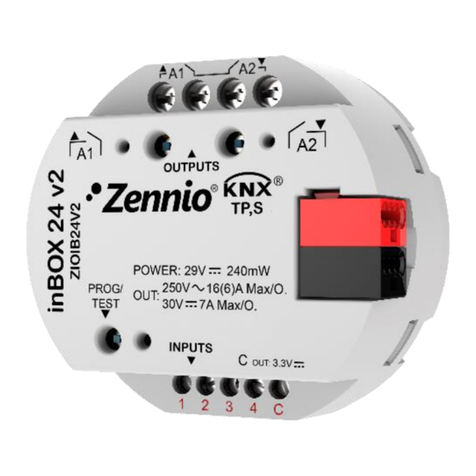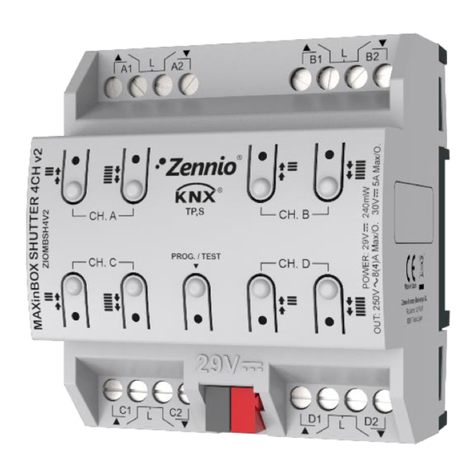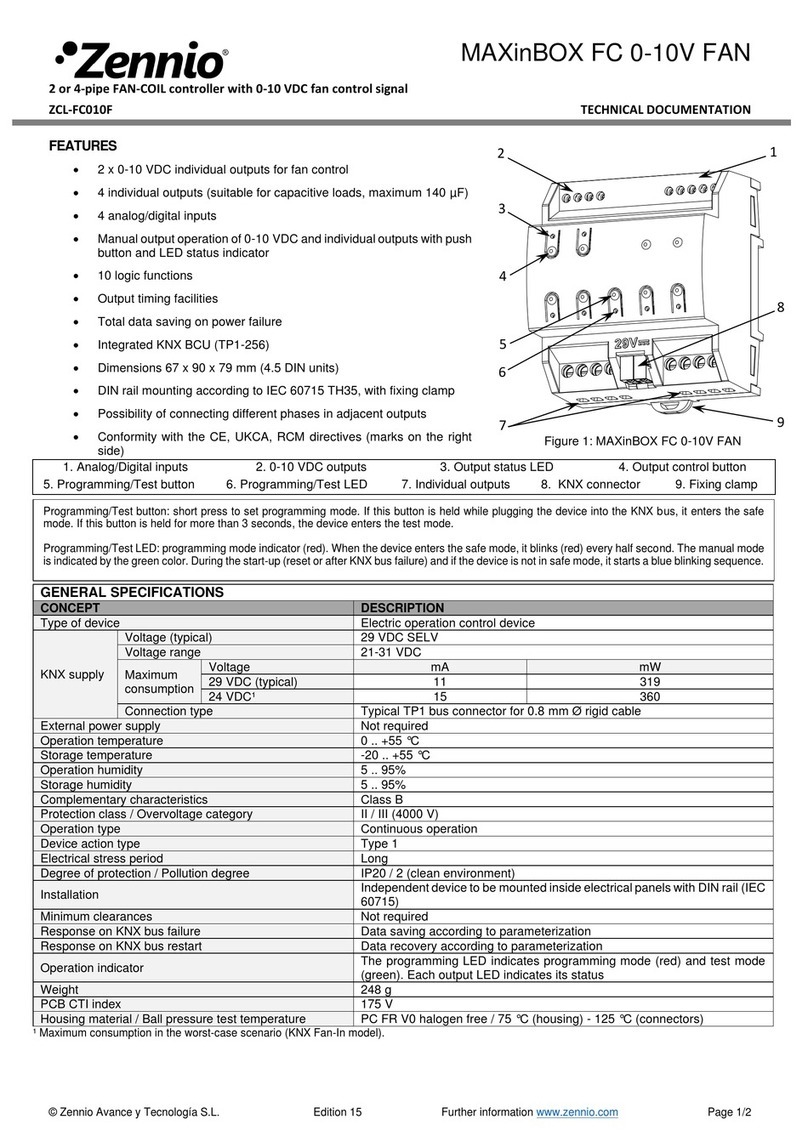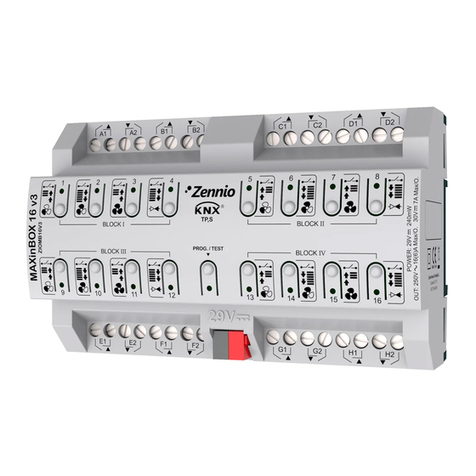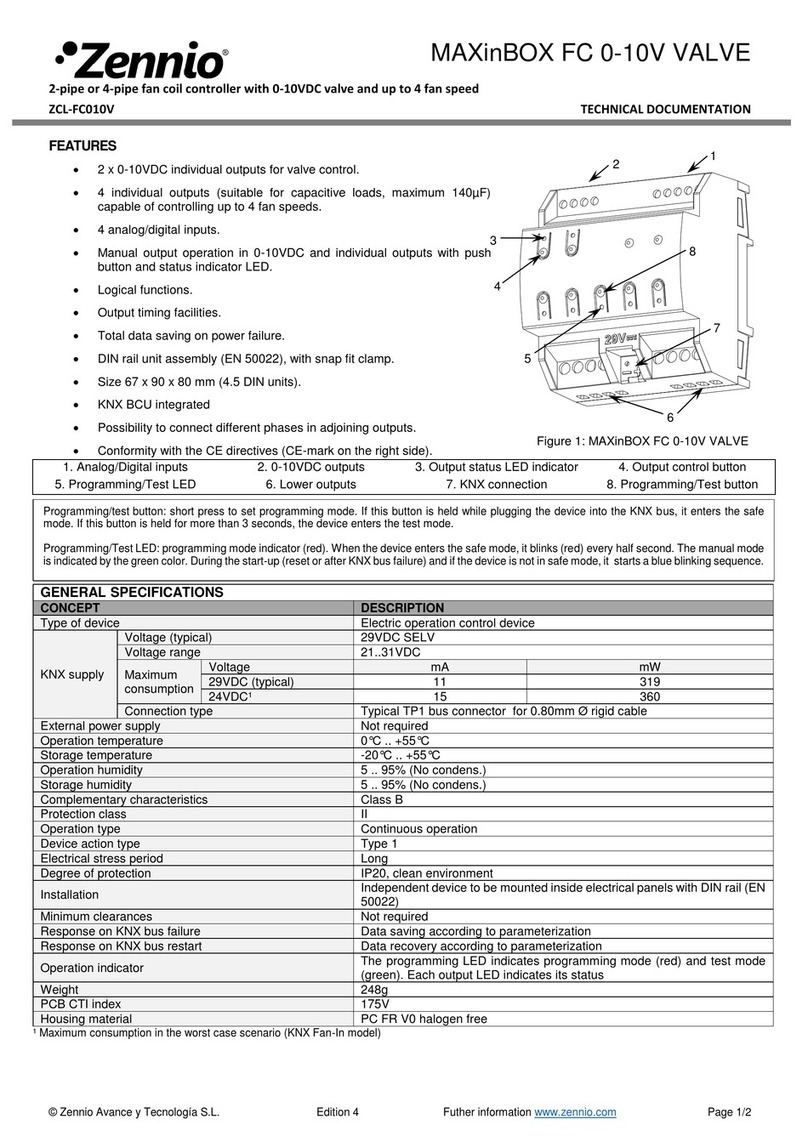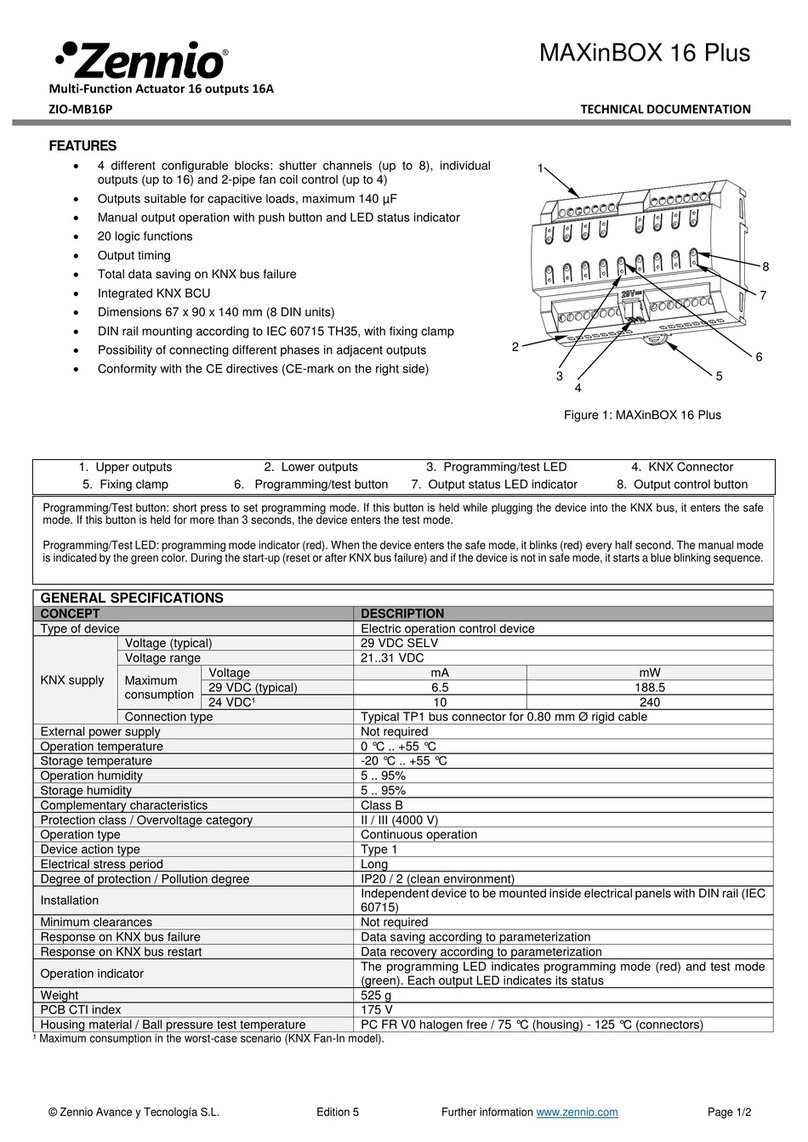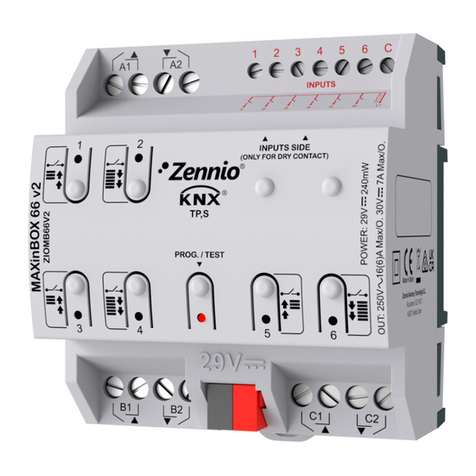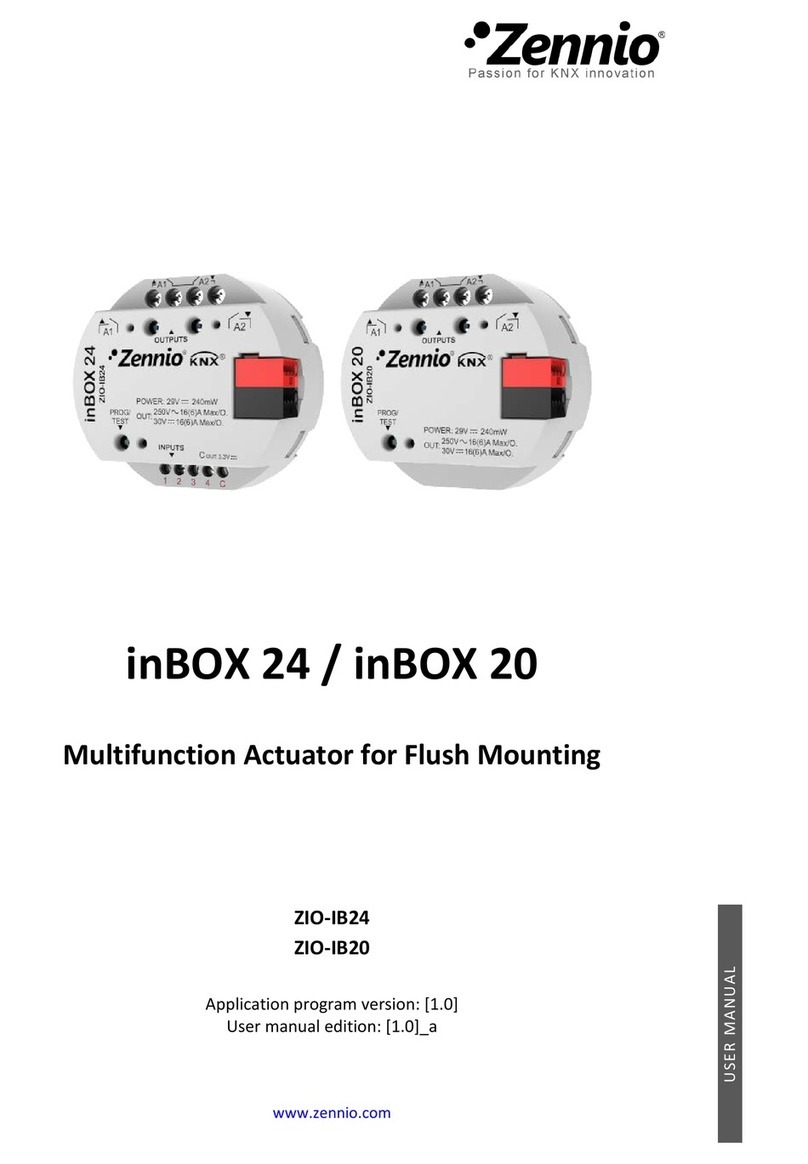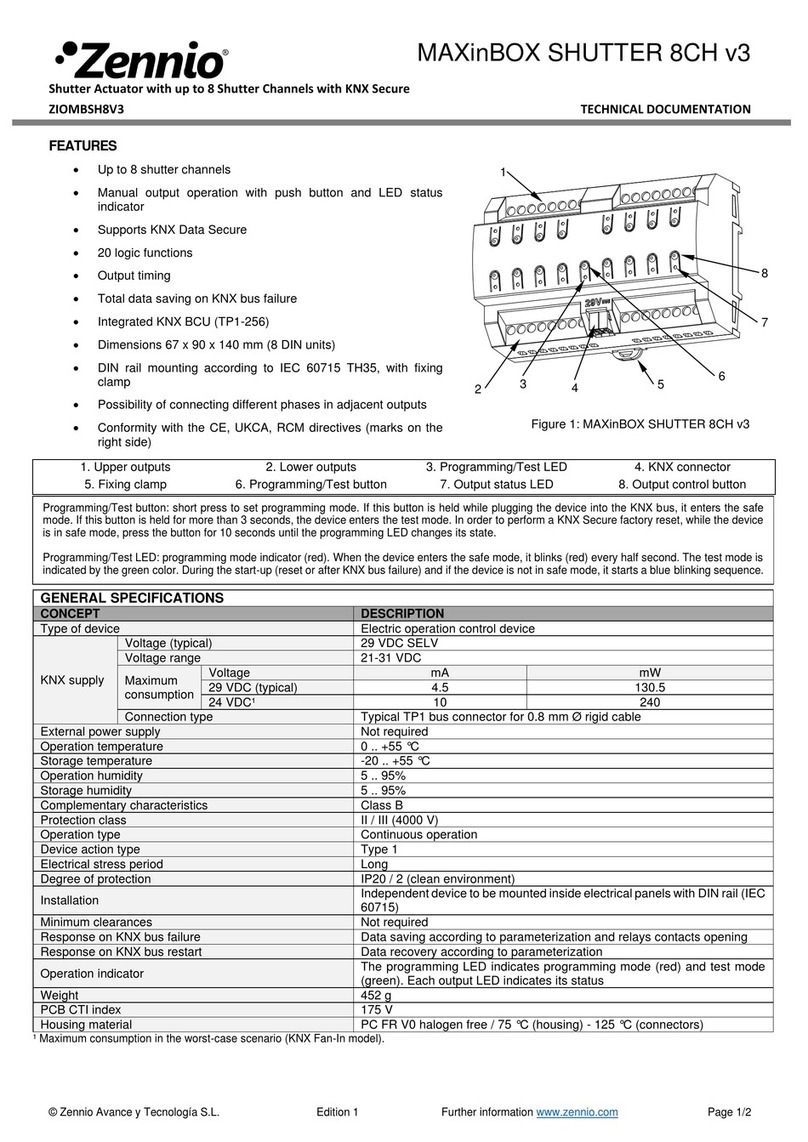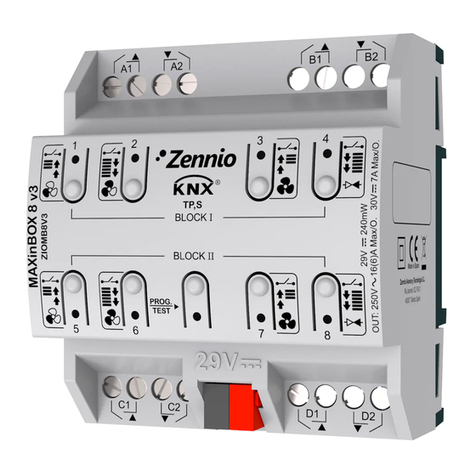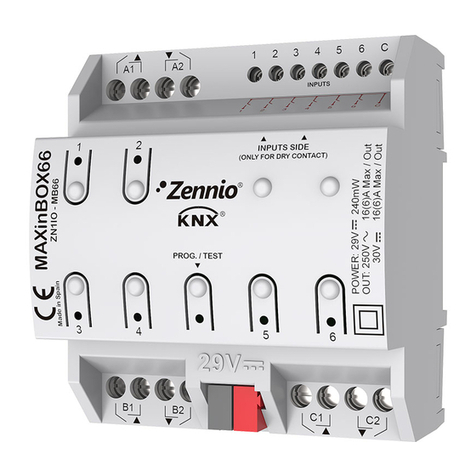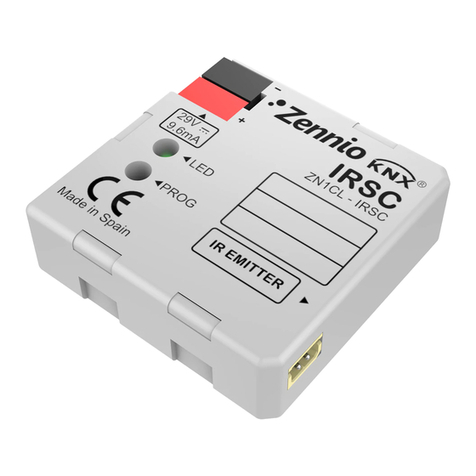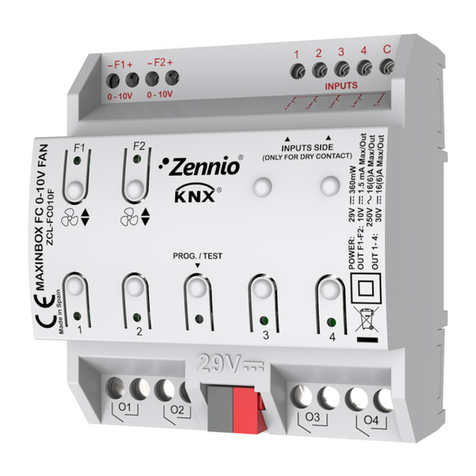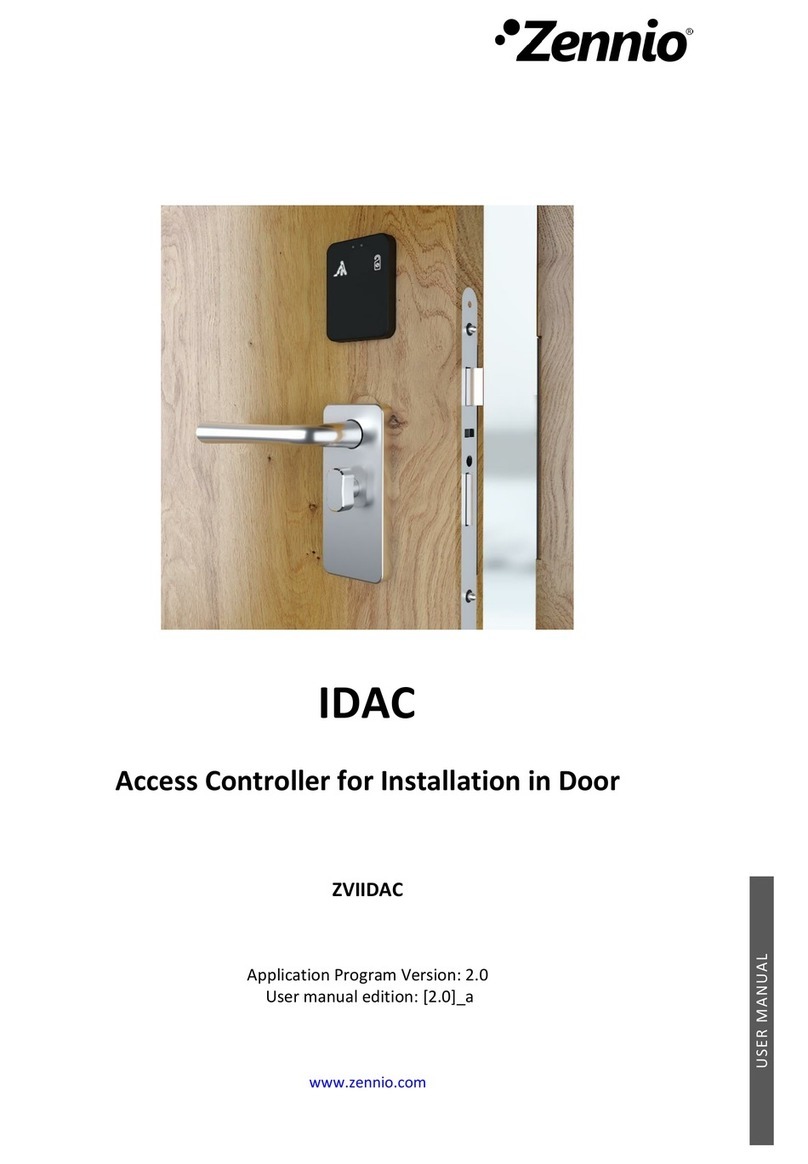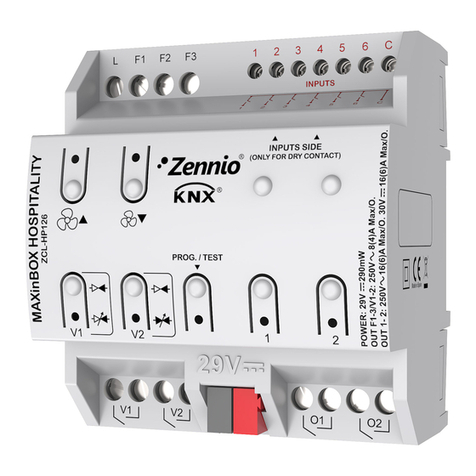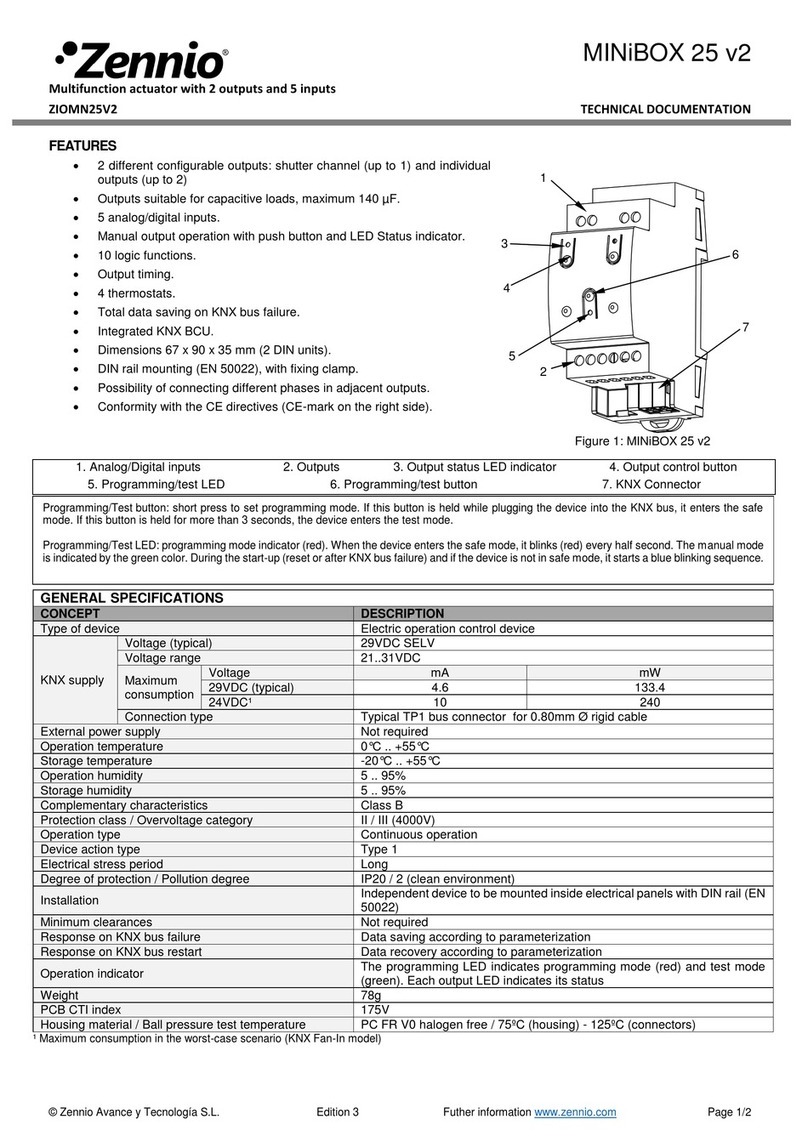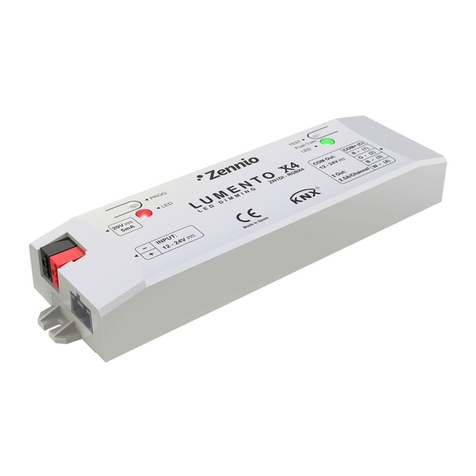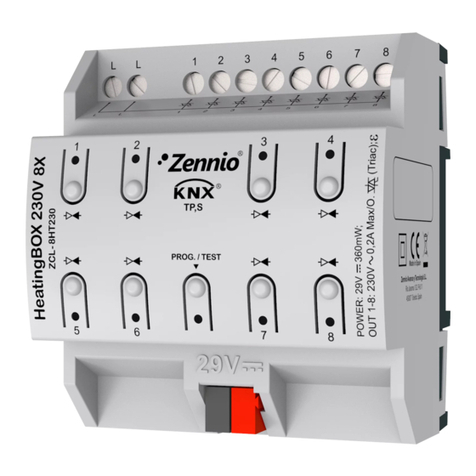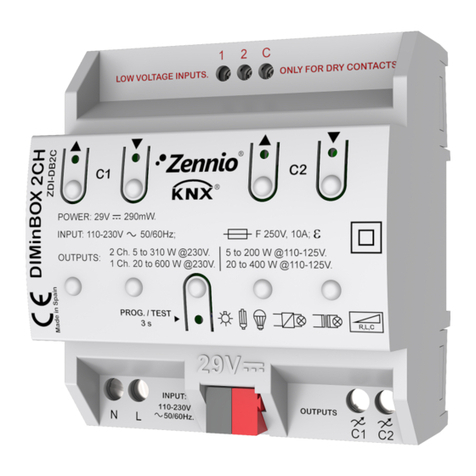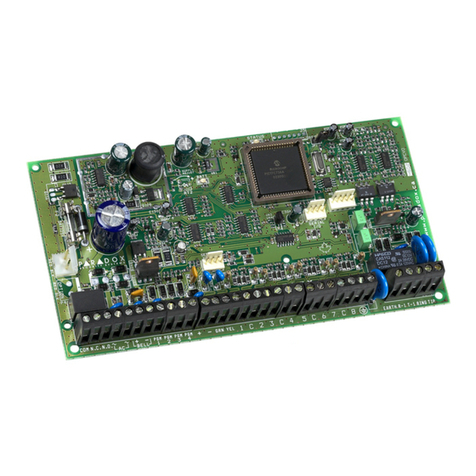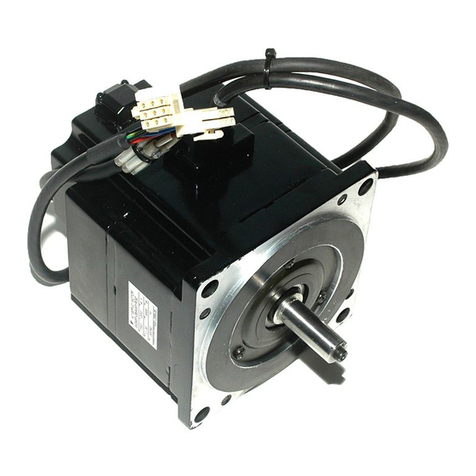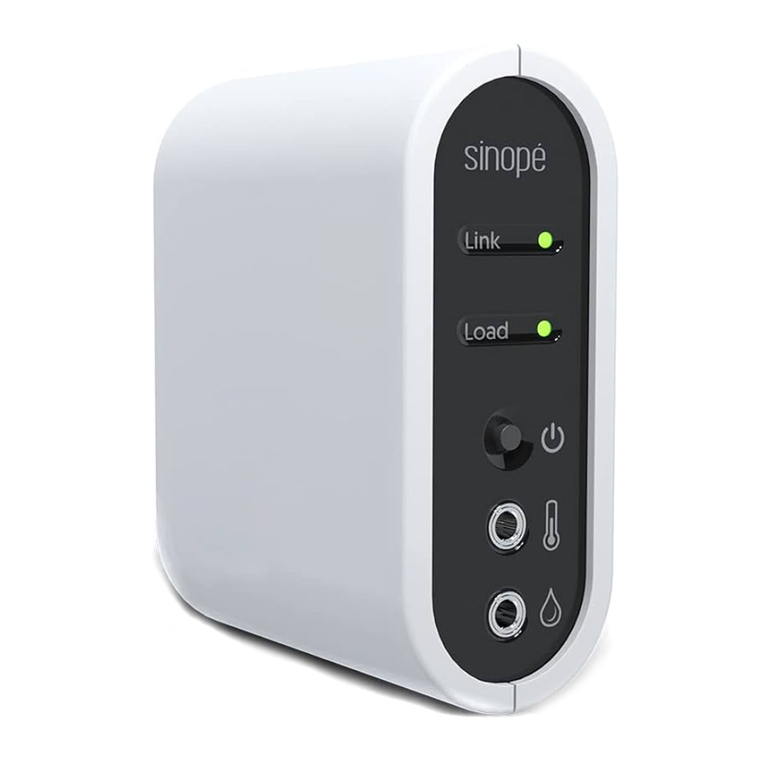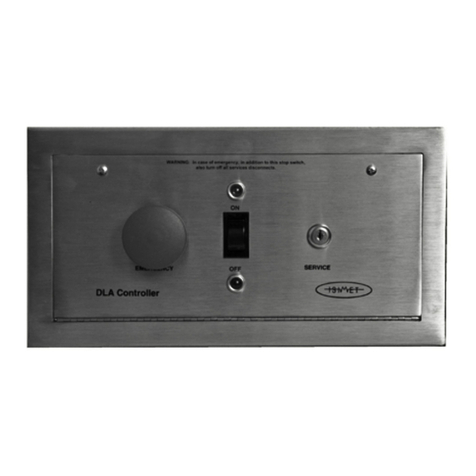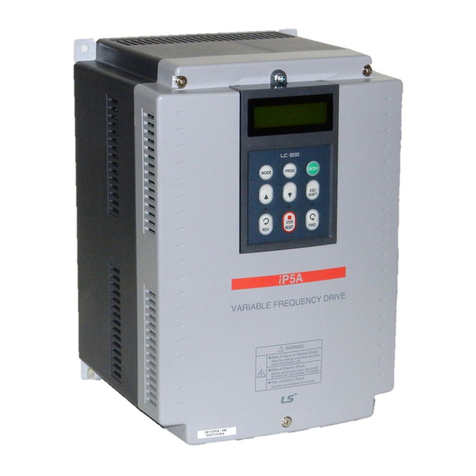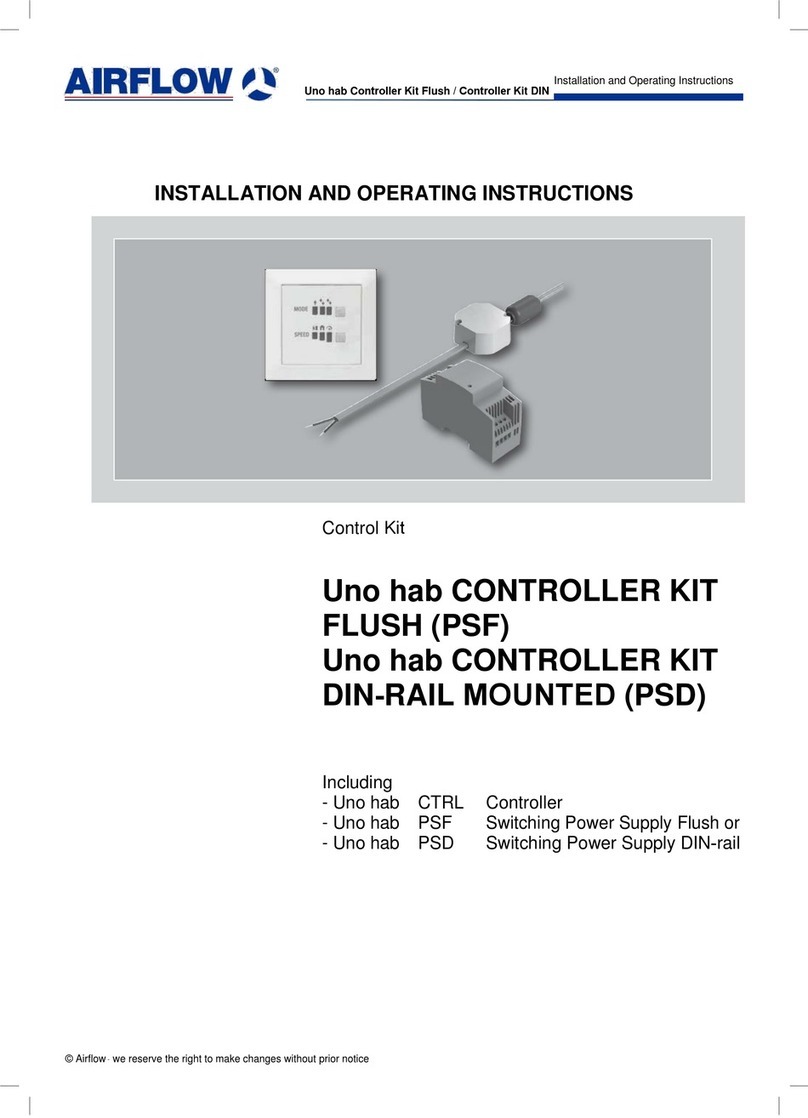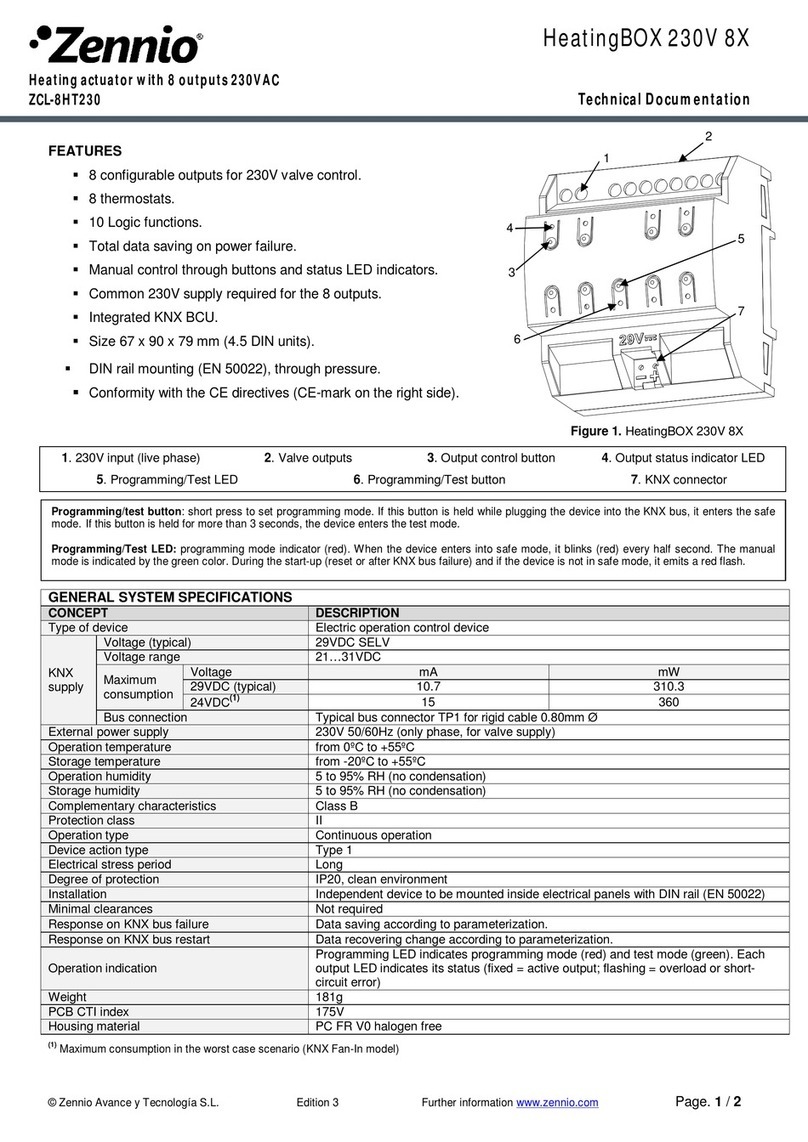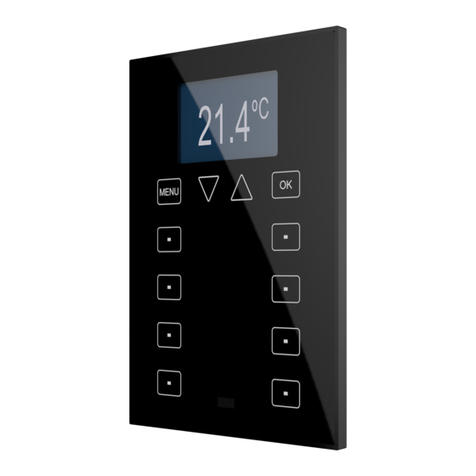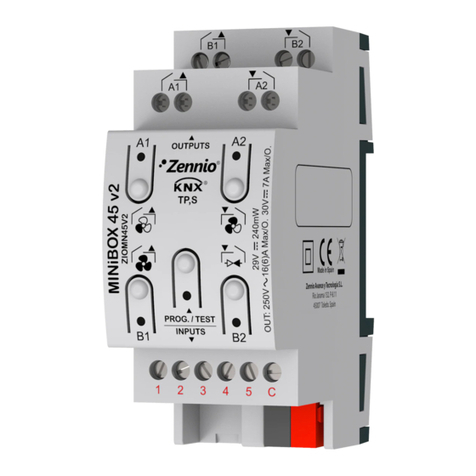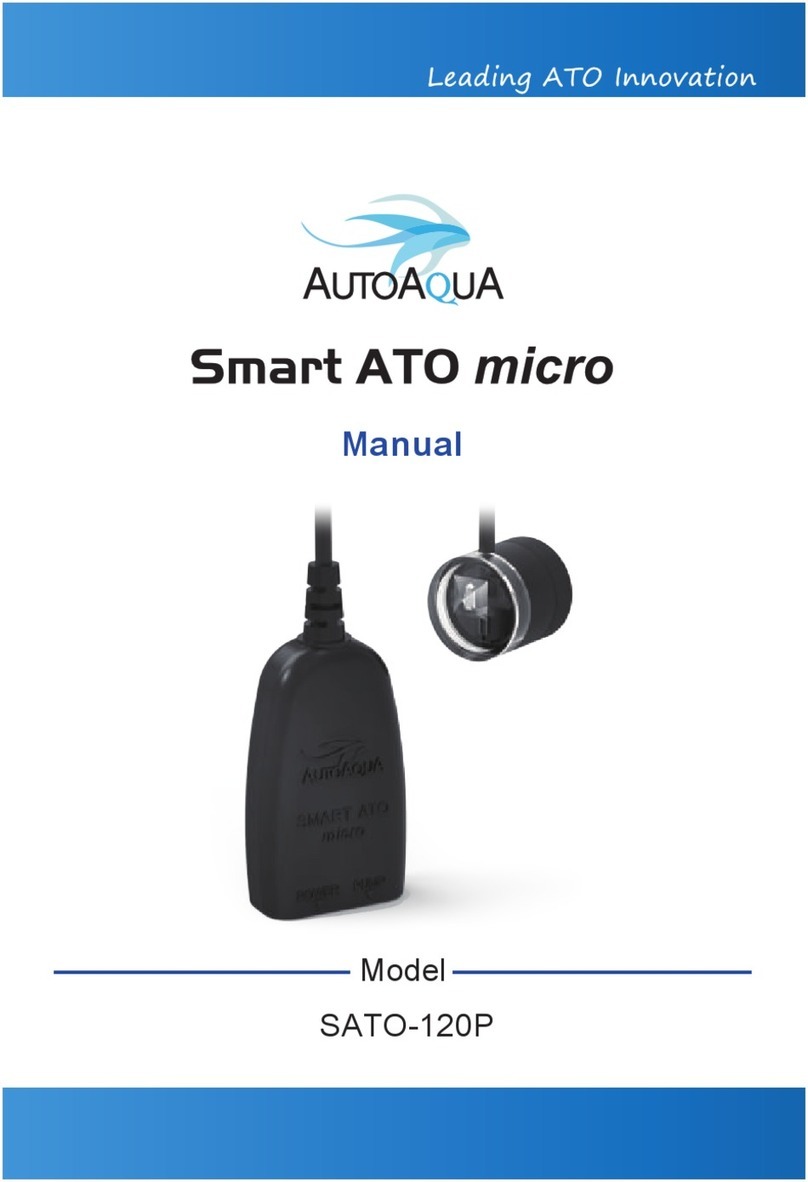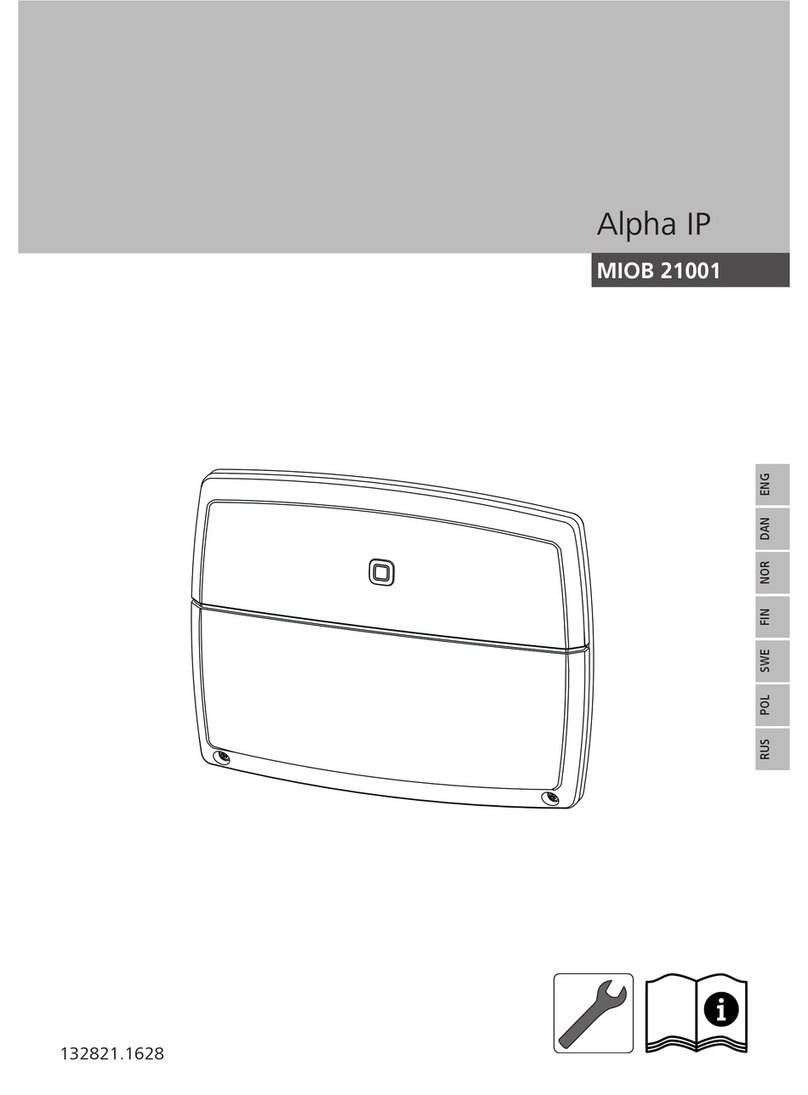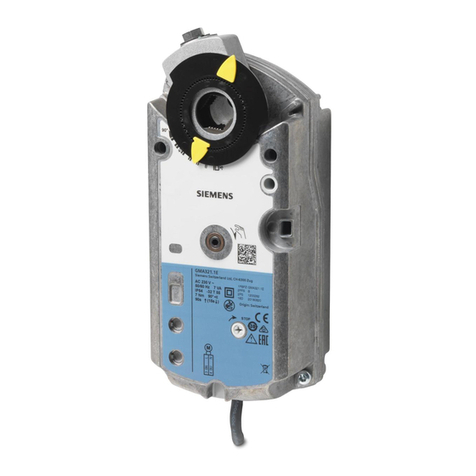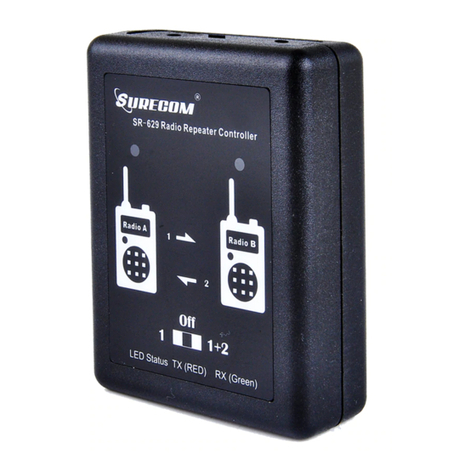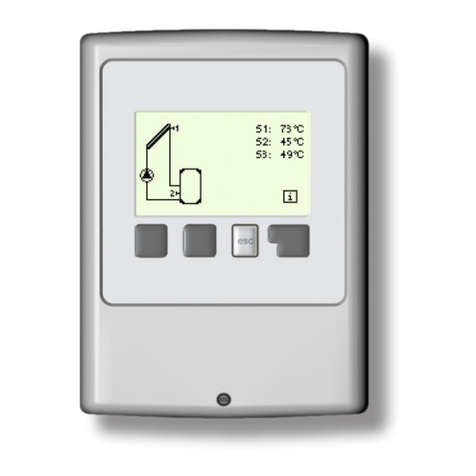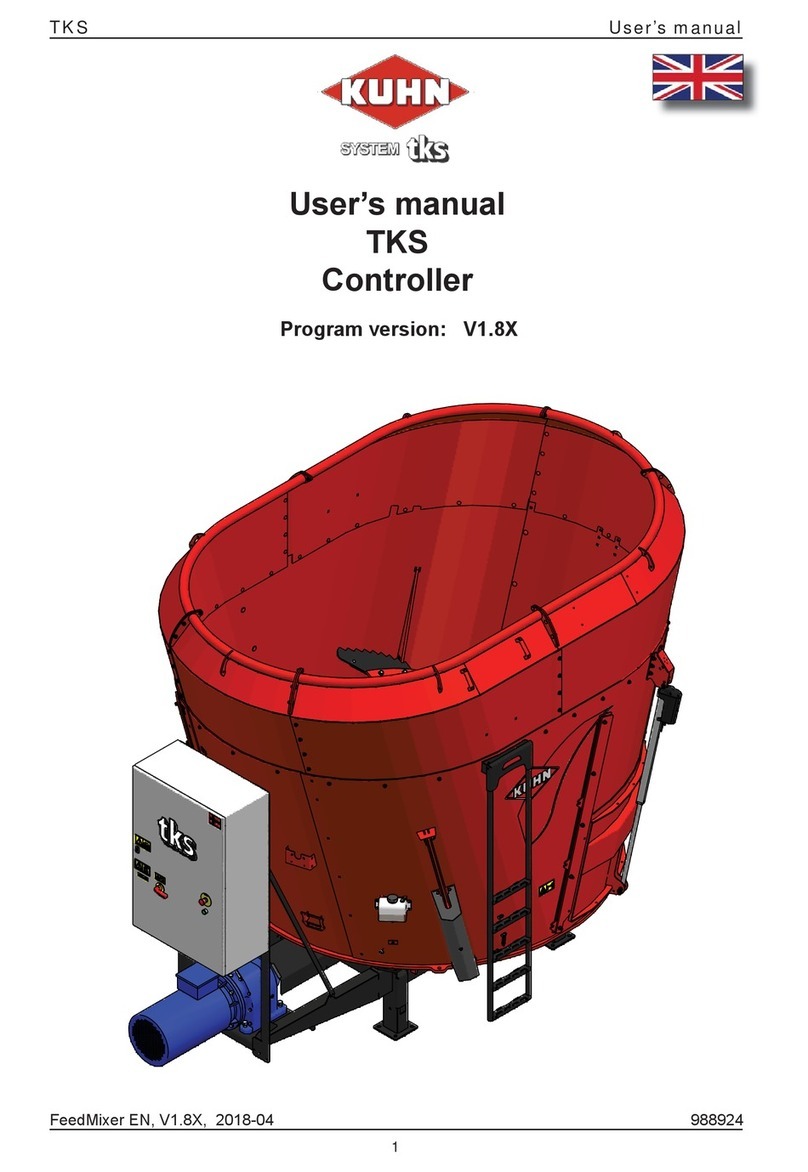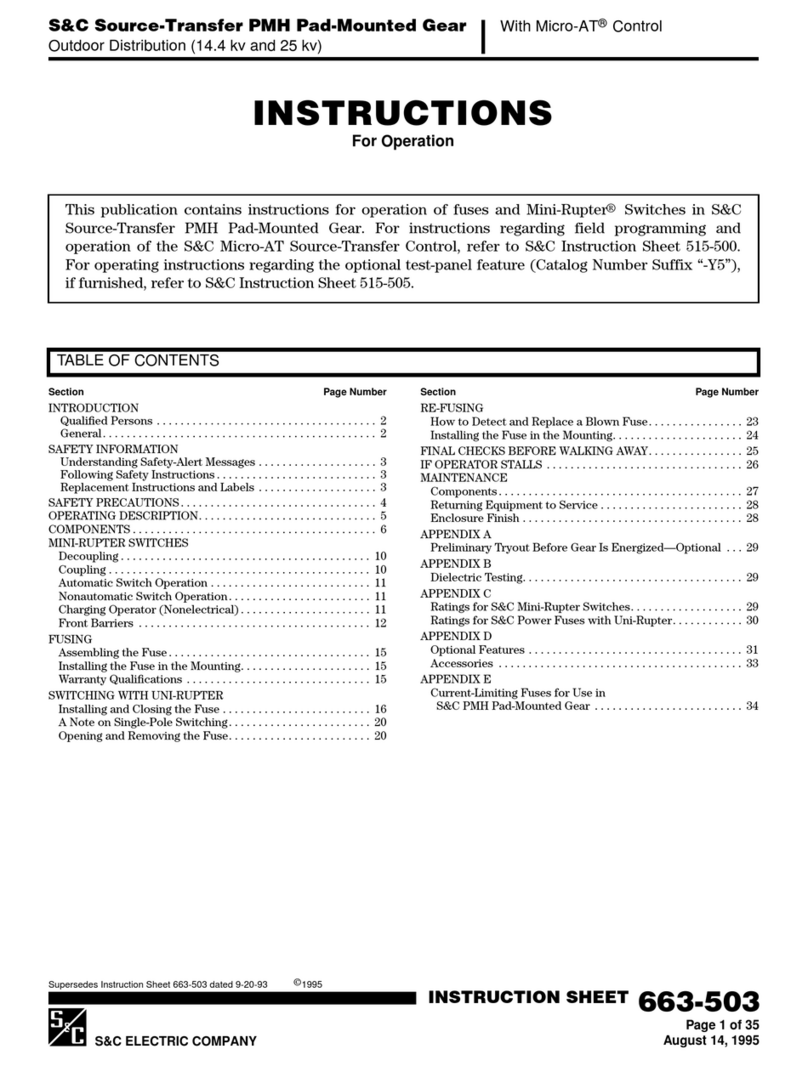
© Zennio Avance y Tecnología S.L. Edition 2 Further information www.zennio.com Page 2/2
SAFETYINSTRUCTIONSANDADDITIONAL NOTES
•Installation should only be performed by qualified professionals according to the laws and regulations applicable in each country.
•Do not connect the mains voltage nor any other external voltage to any point of the KNX bus; it would represent a risk for the entire
KNX system. The facility must have enough insulation between the mains (or auxiliary) voltage and the KNX bus or the wires of other
accessories, in case of being installed.
•Once the device is installed (in the panel or box), it must not be accessible from outside.
•Keep the device away from water (condensation over the device included) and do not cover it with clothes, paper or any other material
while in use.
•The WEEE logo means that this device contains electronic parts and it must be properly disposed of by following the instructions at
https://www.zennio.com/en/legal/weee-regulation.
•This device contains software subject to specific licences. For details, please refer to https://zennio.com/licenses.
OUTPUTS SPECIFICATIONS AND CONNECTIONS
Output type / Disconnection type
Potential-freeoutputsthrough bistablerelays with
tungsten pre-contact / Micro-disconnection
AC 16(6) A @ 250 VAC (4000 VA)
DC 7 A @ 30 VDC (210 W)
Connections in adjacent outputs
Possibility of connecting different phases. It is not
allowed to connect power supplies of different
order, SELV with NO SELV, in the same block.
Total maximum current in device
Screw terminal block (0.5 Nm max.)
0.5-4 mm² (IEC) / 20-12 AWG (UL)
Mechanical lifetime (min. cycles)
Electrical lifetime (min. cycles)1
100000 @ 8 A / 25000 @ 16 A (VAC)
¹ Lifetime values could change depending on the load type.
INPUTS SPECIFICATIONS AND CONNECTIONS
1 mA @ 3.3 VDC (per input)
Dry voltage contacts between input and common
Screw terminal block (0.4 Nm max.)
0.5-2.5 mm² (IEC) / 26-12 AWG (UL)
1.5 m (extensible up to 30 m)
² For Zennio temperature probes.
⚠In order to ensure the expected status of the
relays, please check that the device is connected to
the KNX bus before energizing the power circuit.
Figure 2: Wiring example (from left to right,
and up to down): 2 loads, 2 loads connected
to different phases, shutter and fan coil
* In case of using ZN1IO-DETEC-P sensor, its micro switch number 2 must be in Type B position.
** Zennio temperature probe or any NTC with known resistance values at three points in the range [-55, 150 ºC].
Any combination of the following accessories is allowed in the inputs:
Zennio temperature
probe.
can be plugged into the
same device input (parallel
connecting Zennio motion
sensors*
Switch/Sensor/
Push button
A1 A2
M
N
L
A1 A2
N
L
L1 L2
A1 A2
NL1
L1 L2
L2
CIN CIN
C I
CIN
Attaching MINiBOX 45 v3 to DIN rail:
Removing MINiBOX 45 v3 from DIN rail:
A1 A2
M
N
L
A1 A2
N
L
L1 L2
A1 A2
NL1
L1 L2
L2
CIN CIN
C I
CIN
Commons of different devices
must not be connected together.
